Home>diy>Building & Construction>How To Manage A Construction Company
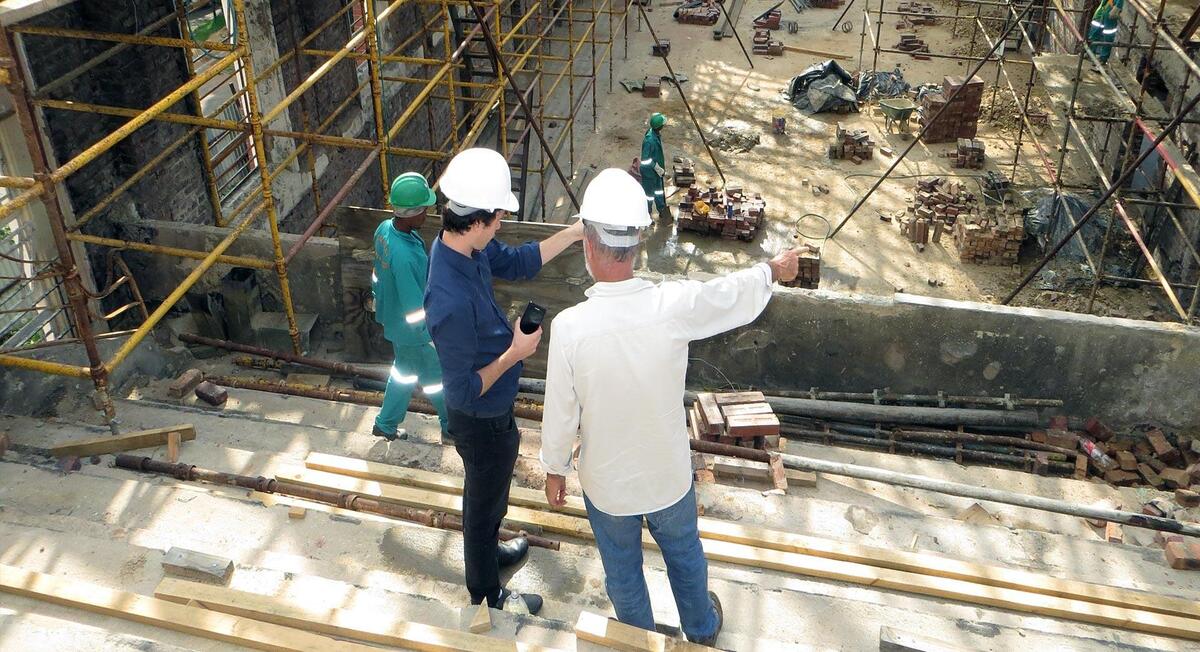

Building & Construction
How To Manage A Construction Company
Modified: March 6, 2024
Learn effective strategies and techniques for managing a construction company in the building construction industry. Enhance productivity, streamline operations, and achieve success.
(Many of the links in this article redirect to a specific reviewed product. Your purchase of these products through affiliate links helps to generate commission for Storables.com, at no extra cost. Learn more)
Introduction
Welcome to the world of construction, where dreams are turned into reality and buildings rise from the ground. Managing a construction company involves a unique set of challenges and responsibilities that require both expertise in the industry and effective business management skills.
Whether you are starting a new construction company or looking to improve the management of your existing business, this article will guide you through the key aspects of running a successful construction company.
From hiring and training employees to project management and financial planning, we will cover all the critical areas that will help you navigate the complex and ever-evolving world of construction management.
Let’s delve into each of these areas in detail and understand how you can effectively manage your construction company.
Key Takeaways:
- Building a successful construction company involves hiring skilled employees, managing projects efficiently, and prioritizing safety and client satisfaction. By focusing on these areas, you can lead your company to long-term success.
- Effective communication, proactive risk management, and strategic marketing are essential for standing out in the construction industry. By continuously improving and adapting to industry trends, your company can thrive in a competitive market.
Read more: What Is Construction Management
Hiring and Training Employees
One of the most important aspects of managing a construction company is hiring and training the right employees. Skilled and dedicated workers are the backbone of any successful construction project. Here are some key considerations when it comes to hiring and training employees:
1. Define Job Roles and Responsibilities: Clearly define the roles and responsibilities of each job position within your company. This will help you identify the specific skills and qualifications required for each position.
- For example, you may need project managers, site supervisors, construction workers, electricians, plumbers, and more.
- By having well-defined roles, you can attract and hire employees who are a good fit for your company’s needs.
2. Create a Recruitment Process: Develop a systematic process for recruiting new employees. This may include advertising job openings, conducting interviews, and checking references.
- Consider utilizing online job portals, social media, and industry-specific networks to reach a larger pool of potential candidates.
- Interview candidates thoroughly, assessing both their technical skills and their ability to work well as a part of a team.
3. Focus on Training and Development: Once you have hired employees, invest in their training and development. This will not only enhance their skills but also improve the overall efficiency and quality of your projects.
- Provide comprehensive training programs for new hires to familiarize them with your company’s safety procedures, quality standards, and project management processes.
- Offer ongoing training opportunities to keep your employees updated with the latest industry practices, technological advancements, and safety regulations.
- Consider partnering with vocational schools or apprenticeship programs to attract and train young talent.
4. Foster a Positive Work Environment: Create a work culture that fosters teamwork, open communication, and mutual respect.
- Encourage collaboration and provide opportunities for your employees to share their ideas and suggestions.
- Recognize and reward your employees’ hard work and achievements.
- Invest in employee wellness programs and ensure a healthy work-life balance.
5. Continuously Evaluate Performance: Regularly assess the performance of your employees to identify areas of improvement and provide constructive feedback.
- Set clear performance goals and objectives.
- Conduct periodic performance reviews to gauge progress and provide guidance for career growth.
- Recognize and address any issues or conflicts that may arise in the workplace promptly.
By focusing on hiring the right people and providing them with the necessary training and support, you can build a motivated and skilled team that will contribute to the success of your construction company.
Project Management
Effective project management is essential for the successful execution of construction projects. It involves planning, organizing, and coordinating all the activities from start to finish. Here are some key considerations for effective project management:
1. Develop a Project Scope and Timeline: Clearly define the scope of work for each project and create a detailed timeline. This will help you set realistic expectations and ensure that all stakeholders are on the same page.
- Break down the project into smaller tasks and assign specific timelines and responsibilities for each task.
- Use project management software to track progress, manage deadlines, and communicate with the team.
2. Efficient Resource Allocation: Allocate the necessary resources such as labor, materials, and equipment to each project efficiently.
- Keep track of the availability and utilization of resources to avoid overbooking or underutilization.
- Monitor and manage the inventory of materials to ensure that supplies are replenished as needed.
3. Risk Assessment and Mitigation: Identify potential risks and develop strategies to mitigate them.
- Regularly assess the project for any safety hazards, environmental concerns, or legal compliance issues.
- Implement proper safety protocols and provide adequate training to your employees to minimize the risk of accidents and injuries.
4. Effective Communication: Establish clear lines of communication with all stakeholders involved in the project.
- Regularly communicate the project status, updates, and any changes to the team, clients, and subcontractors.
- Hold regular meetings or utilize communication tools to ensure effective and timely information exchange.
5. Quality Control: Implement quality control measures to ensure that the project meets the required standards and specifications.
- Regularly inspect the workmanship to identify and address any issues or deviations from the plans.
- Collaborate with architects, engineers, and other consultants to ensure compliance with building codes and regulations.
6. Financial Management: Keep track of the project expenses and budget to avoid cost overruns.
- Regularly monitor the project’s financial performance and compare it to the estimated budget.
- Control and document any changes that occur during the project, ensuring that all parties involved are aware of the impact on cost and schedule.
By effectively managing projects, you can ensure their timely completion, within budget, and to the satisfaction of your clients. Strong project management skills will help you build a reputation for delivering high-quality construction projects.
Financial Planning and Budgeting
Financial planning and budgeting are crucial aspects of managing a construction company. It involves developing a comprehensive financial strategy and allocating resources effectively. Here are some key considerations for financial planning and budgeting:
1. Create a Business Plan: Start by developing a comprehensive business plan that outlines your company’s goals, target markets, and growth strategies. This will serve as a roadmap for your financial planning.
- Identify your sources of revenue, such as construction projects, maintenance contracts, or consulting services.
- Consider the costs associated with running your business, including labor, materials, equipment, insurance, permits, and administrative expenses.
2. Estimate Costs Accurately: Develop accurate cost estimates for each project to ensure profitability.
- Consider all direct costs, such as labor, materials, equipment rentals, and subcontractors.
- Factor in indirect costs, such as overhead expenses, project management, and administrative costs.
- Account for unforeseen expenses by including a contingency budget.
3. Track Expenses and Income: Implement a system for tracking all expenses and income related to your construction projects.
- Keep detailed records of invoices, receipts, and financial transactions.
- Regularly update your financial statements, including balance sheets, income statements, and cash flow statements.
- Use accounting software or hire a professional bookkeeper to streamline your financial processes.
4. Monitor Cash Flow: Maintain a positive cash flow by carefully managing your company’s working capital.
- Ensure that your customers pay you promptly and follow up on any overdue payments.
- Negotiate favorable payment terms with suppliers to optimize your cash flow.
- Consider securing a line of credit or working capital loan to bridge any gaps in cash flow.
5. Seek Professional Advice: Consult with a financial planner or accountant who specializes in the construction industry.
- They can provide guidance on tax planning, financial projections, and investment strategies.
- Work with them to develop a long-term financial plan that aligns with your business goals.
6. Regularly Review and Adjust: Monitor your financial performance regularly and make adjustments as needed.
- Analyze your projects’ profitability, identifying any variances or areas for improvement.
- Compare your actual expenses and revenues to your budgeted amounts.
- Review your financial goals and make adjustments to your strategy if necessary.
By implementing effective financial planning and budgeting practices, you can ensure the financial stability and success of your construction company. It will enable you to make informed decisions and manage your resources efficiently, ultimately driving profitability and growth.
Equipment and Material Procurement
Proper equipment and material procurement is essential for the smooth operation of a construction company. Having the right tools and materials ensures efficient project execution and helps maintain quality standards. Here are some key considerations for equipment and material procurement:
1. Identify Project Requirements: Determine the specific equipment and materials needed for each project based on the project plans and specifications.
- Consider the scope of work, timeline, and budget when making procurement decisions.
- Work closely with project managers and site supervisors to determine the necessary equipment and materials.
2. Research and Evaluate Suppliers: Conduct thorough research and evaluation of suppliers to ensure they can provide high-quality equipment and materials.
- Look for reputable suppliers with a track record of delivering quality products on time.
- Compare prices, warranties, and customer reviews to make informed decisions.
- Consider establishing long-term relationships with reliable suppliers to streamline the procurement process.
3. Consider Rental Options: Assess the feasibility of renting equipment instead of purchasing.
- Renting equipment can be a cost-effective solution for projects with short durations or specialized requirements.
- Compare rental rates, terms, and conditions from multiple suppliers to get the best value for your money.
- Regularly inspect rented equipment to ensure its proper functionality and compliance with safety standards.
4. Prioritize Safety and Quality: Ensure that all equipment and materials meet the required safety and quality standards.
- Verify that equipment has undergone regular maintenance and inspections.
- Check material certifications and ensure compliance with industry standards.
- Train your employees on the proper use and maintenance of equipment to minimize accidents and damage.
5. Optimize Inventory Management: Implement effective inventory management practices to avoid shortages or excess supplies.
- Keep track of inventory levels and replenish stock as needed.
- Consider just-in-time delivery methods to minimize storage costs and maximize efficiency.
- Develop relationships with vendors who offer timely and reliable delivery services.
6. Budget for Equipment and Material Expenditures: Allocate a portion of your budget for equipment and material procurement.
- Account for not only the purchase or rental costs but also ongoing maintenance and repair expenses.
- Consider the total cost of ownership, including long-term operational costs.
By carefully managing your equipment and material procurement process, you can ensure that your construction projects run smoothly and efficiently. This will lead to higher productivity, improved project outcomes, and a reputation for delivering quality work.
Read more: How To Register A Construction Company
Safety and Compliance
Safety and compliance are paramount in the construction industry. Prioritizing safety not only protects your workers but also ensures legal compliance and safeguards your reputation. Here are some key considerations for maintaining safety and compliance in your construction company:
1. Develop a Safety Program: Establish a comprehensive safety program that outlines safety procedures, guidelines, and expectations.
- Create a safety manual that includes protocols for handling hazardous materials, operating equipment, and responding to emergencies.
- Regularly train your employees on safety protocols and ensure their understanding and compliance.
- Appoint a dedicated safety officer to oversee and enforce safety measures on job sites.
2. Conduct Regular Safety Inspections: Regularly inspect job sites to identify potential hazards and address them promptly.
- Check for proper use of personal protective equipment (PPE), signage, and barricades.
- Ensure that scaffolding, ladders, and other equipment are secure and in good working condition.
- Maintain proper housekeeping to minimize potential tripping or slipping hazards.
3. Comply with Legal and Regulatory Requirements: Stay updated with local, state, and federal regulations regarding safety and compliance.
- Obtain and maintain all necessary licenses, permits, and certifications.
- Regularly review and enact policies and procedures to ensure compliance with Occupational Safety and Health Administration (OSHA) guidelines.
- Stay aware of any changes in regulations and adapt your safety practices accordingly.
4. Provide Ongoing Safety Training: Invest in regular training sessions to keep your employees informed about the latest safety practices and protocols.
- Offer training on topics such as fall protection, electrical safety, equipment operation, and first aid.
- Encourage employees to report any safety concerns or near-misses, and provide a process for addressing them.
- Conduct safety drills and mock scenarios to ensure that employees are prepared for emergencies.
5. Foster a Safety Culture: Create a company culture that values safety and encourages employees to prioritize it.
- Lead by example and visibly demonstrate your commitment to safety in all aspects of your business.
- Recognize and reward employees who consistently follow safety procedures and contribute to a safe working environment.
- Encourage open communication, allowing employees to voice any safety concerns or suggestions for improvement.
6. Continuously Improve and Evolve: Regularly evaluate and update your safety program to address emerging safety issues.
- Review incident reports, near misses, and feedback from employees to identify areas for improvement.
- Stay informed about industry best practices and new technologies that can enhance safety.
- Collaborate with industry associations and participate in safety seminars or conferences to keep up with the latest trends.
By prioritizing safety and compliance, you create a work environment that values the well-being of your employees and ensures your construction company remains in good standing with regulatory authorities. A strong safety culture will also contribute to the overall success and longevity of your business.
Tip: Establish clear communication channels with your team, clients, and suppliers to ensure everyone is on the same page and projects run smoothly.
Communication and Collaboration
Effective communication and collaboration are vital for the success of any construction company. Good communication ensures that all team members are on the same page, tasks are completed efficiently, and issues are addressed promptly. Here are some key considerations for improving communication and fostering collaboration within your construction company:
1. Clear and Transparent Communication: Establish clear channels of communication within your company.
- Implement regular team meetings or toolbox talks to discuss project updates, goals, and challenges.
- Utilize project management platforms and communication tools to facilitate real-time collaboration and document sharing.
- Encourage open and honest communication, where team members feel comfortable expressing their opinions and concerns.
2. Project Coordination and Information Sharing: Ensure that project information is easily accessible to all relevant stakeholders.
- Create a centralized project repository for important documents, drawings, and specifications.
- Regularly update project schedules so that all team members are aware of project milestones and deliverables.
- Encourage collaboration and knowledge sharing among team members by providing a platform for sharing lessons learned and best practices.
3. Foster a Collaborative and Team-Oriented Culture: Encourage teamwork and collaboration among your employees.
- Promote cross-functional collaboration by engaging employees from different departments in project planning and decision-making processes.
- Organize team-building activities, workshops, or training programs to strengthen relationships and foster collaboration.
- Recognize and reward teamwork and collaboration to reinforce the importance of working together towards a common goal.
4. Active Listening and Feedback: Encourage active listening and provide a platform for employees to share their ideas and provide feedback.
- Create a culture where all employees feel valued and heard, regardless of their position or experience level.
- Encourage constructive feedback and suggestions for improvement.
- Regularly seek input from employees on project processes and workflow to identify areas for improvement.
5. Effective Stakeholder Communication: Maintain open lines of communication with clients, subcontractors, and other project stakeholders.
- Regularly update clients on project progress, any changes, or potential issues.
- Engage subcontractors early in the project planning phase to foster collaboration and ensure their understanding of project requirements.
- Establish clear communication channels to address any concerns or issues that may arise.
6. Continuously Improve Communication Practices: Regularly evaluate your communication processes and make necessary adjustments.
- Seek feedback from employees and project stakeholders on ways to improve communication and collaboration.
- Stay updated on emerging communication technologies and tools that can enhance collaboration and streamline communication processes.
- Invest in professional development programs to improve communication skills among your team members.
By prioritizing effective communication and fostering a collaborative culture, you can ensure that projects run smoothly, tasks are completed efficiently, and all team members are aligned towards a common goal. Effective communication and collaboration are key drivers of success in the construction industry.
Client Relations and Customer Satisfaction
Developing strong client relations and ensuring customer satisfaction are crucial for the success and growth of your construction business. Satisfied clients not only lead to repeat business but also serve as valuable references for future projects. Here are some key considerations for building positive client relationships and ensuring customer satisfaction:
1. Clear Communication: Communication is key in building a strong relationship with clients.
- Regularly communicate project updates, timelines, and any changes to keep clients informed and involved.
- Be responsive to client inquiries, addressing their concerns and answering their questions promptly.
- Provide clear and concise communication, avoiding jargon or technical terms that may confuse clients.
2. Establish Trust and Transparency: Build trust by being transparent and reliable in your interactions with clients.
- Set realistic expectations regarding project timelines, budget, and potential challenges.
- Be honest about any issues or setbacks that may arise and work collaboratively with clients to find solutions.
- Manage client expectations through clear and open communication, ensuring they are well-informed throughout the project.
3. Deliver High-Quality Work: Consistently deliver high-quality construction work to exceed client expectations.
- Ensure that your team is skilled and properly trained to perform their tasks to the highest standards.
- Maintain a focus on attention to detail and quality control throughout all project phases.
- Regularly inspect workmanship and address any issues or concerns proactively to uphold quality standards.
4. Efficient Project Management: Efficiently manage projects to ensure timely completion and client satisfaction.
- Track project progress, monitor timelines and milestones, and provide regular updates to clients.
- Anticipate potential obstacles and proactively communicate any delays or revised schedules to clients.
- Manage change requests and variations effectively, discussing any impact on budget or timeline upfront with clients.
5. Post-Project Follow-Up: Conduct post-project follow-up to ensure client satisfaction and address any outstanding concerns.
- Request feedback from clients on their experience with your company and the quality of the project.
- Address any issues or concerns promptly and take appropriate actions to resolve them.
- Use client feedback as an opportunity to improve your processes and enhance future project outcomes.
6. Develop Long-Term Relationships: Aim to develop long-term relationships with clients to foster loyalty and generate repeat business.
- Stay in touch with clients after project completion, sending occasional updates or newsletters to maintain a connection.
- Consider offering loyalty programs or incentives to reward clients for their continued business.
- Seek referrals from satisfied clients, as word-of-mouth recommendations are invaluable in the construction industry.
By prioritizing client relations and ensuring customer satisfaction, you can build a strong reputation, increase client loyalty, and position your construction business for long-term success. Happy clients are not only valuable references but also potential advocates for your company in the industry.
Risk Management
Risk management is an integral part of successfully managing a construction company. By proactively identifying and mitigating potential risks, you can minimize the impact on your projects and protect your business. Here are some key considerations for effective risk management:
1. Identify Potential Risks: Conduct a comprehensive risk assessment to identify potential risks specific to each project.
- Consider factors such as safety hazards, environmental concerns, regulatory compliance, and contractual obligations.
- Assess both internal risks (such as inadequate resources or lack of expertise) and external risks (such as weather conditions or economic factors).
2. Develop Risk Mitigation Strategies: Once risks are identified, develop strategies and action plans to mitigate them.
- Assign responsibilities to team members for implementing risk mitigation strategies.
- Consider implementing safety protocols, quality control measures, and contingency plans for potential issues.
- Establish clear and realistic project goals and communicate them to relevant stakeholders.
3. Insurance Coverage: Protect your company with appropriate insurance coverage to mitigate financial risks.
- Obtain general liability insurance to cover potential accidents or property damage.
- Consider professional liability insurance to protect against claims resulting from errors or omissions in your work.
- Work with an insurance professional to assess your specific needs and find the most suitable coverage.
4. Contract Assessment: Carefully review and assess contracts with clients, subcontractors, and suppliers to ensure that risks are appropriately allocated.
- Consult with legal counsel to ensure that contracts are comprehensive and protect your company’s interests.
- Include clauses that address issues such as project delays, scope changes, and dispute resolution.
- Ensure that payment terms and conditions are fair and reasonable.
5. Continuous Monitoring and Evaluation: Regularly monitor projects and evaluate the effectiveness of risk mitigation measures.
- Periodically review and update risk management plans to address any emerging risks.
- Conduct post-project reviews to capture lessons learned and enhance risk management practices for future projects.
- Encourage proactive reporting of potential risks or issues by team members and stakeholders.
6. Industry Best Practices: Stay informed about industry best practices and emerging trends in risk management.
- Participate in industry conferences, workshops, and training programs to stay updated on the latest risk management techniques.
- Collaborate and share knowledge with industry peers to learn from their experiences and insights.
- Join industry associations or professional groups that provide resources and support in risk management.
By effectively managing risks, you can protect your business, minimize project disruptions, and ensure the successful completion of your construction projects. Prioritizing risk management demonstrates your commitment to delivering high-quality work and maintaining the trust of your clients and stakeholders.
Read more: How To Market A Construction Company
Marketing and Business Development
Marketing and business development are essential for attracting new clients, establishing your brand, and expanding your construction company. An effective marketing strategy will help you stand out from the competition and generate new business opportunities. Here are some key considerations for marketing and business development in the construction industry:
1. Identify Your Target Market: Determine your target market and understand their needs and preferences.
- Identify the industries or sectors where your services are in high demand.
- Research your target market to understand their pain points, challenges, and priorities.
2. Develop a Strong Brand Identity: Build a strong and recognizable brand identity that reflects your company’s values and expertise.
- Create a visually appealing logo and consistent brand messaging that resonates with your target audience.
- Ensure that your branding is consistent across all marketing materials, including your website, social media platforms, and printed materials.
3. Create a Professional Website: Develop a user-friendly website that showcases your company’s capabilities and projects.
- Highlight your past projects, client testimonials, and certifications to build credibility.
- Include relevant information such as services offered, project portfolio, and contact details.
- Optimize your website with relevant keywords to improve its visibility in search engine results.
4. Leverage Social Media: Utilize social media platforms to enhance your online presence and engage with potential clients.
- Identify which platforms are most relevant to your target market and maintain an active presence on them.
- Share project updates, industry news, and educational content to position your company as an industry expert.
- Respond to customer inquiries and engage with followers to foster positive relationships.
5. Network and Build Relationships: Attend industry events and actively participate in networking opportunities.
- Join industry associations and professional organizations to connect with potential clients and industry peers.
- Participate in conferences, trade shows, and seminars to showcase your expertise and expand your network.
- Build relationships with architects, engineers, and other industry professionals who can refer clients to your business.
6. Maintain Excellent Customer Service: Provide exceptional customer service to foster client loyalty and generate referrals.
- Ensure prompt response to client inquiries and concerns, demonstrating your commitment to their satisfaction.
- Regularly communicate with past clients to assess their satisfaction and identify opportunities for future collaboration.
- Seek feedback from clients and use it to continuously improve your services and processes.
By implementing a strong marketing and business development strategy, you can increase your brand visibility, attract new clients, and cultivate a strong reputation in the construction industry. A proactive approach to marketing will position your company for long-term success and growth.
Conclusion
Managing a construction company is a complex endeavor that requires a combination of industry expertise and effective business management skills. By addressing key areas such as hiring and training employees, project management, financial planning, equipment procurement, safety compliance, communication, client relations, risk management, and marketing, you can position your company for success in the competitive construction industry.
When hiring and training employees, focus on defining roles and responsibilities, creating a systematic recruitment process, providing comprehensive training, fostering a positive work environment, and continuously evaluating performance. A skilled and motivated team is the foundation of any successful construction project.
In project management, attention to detail and effective resource allocation are crucial. Developing a project scope and timeline, implementing risk assessment and mitigation strategies, ensuring efficient communication, and maintaining quality control measures are all essential for successful project execution.
Financial planning and budgeting are instrumental in maintaining the financial stability of your company. Accurately estimating costs, tracking expenses and income, managing cash flow, and seeking professional advice are all important components of effective financial management.
Equipment and material procurement involves identifying project requirements, researching and evaluating suppliers, considering rental options, prioritizing safety and quality, and optimizing inventory management. This ensures you have the necessary resources to complete projects efficiently and to the highest standards.
Safety and compliance should be a top priority in your construction company. Developing a safety program, conducting regular inspections, complying with legal and regulatory requirements, providing ongoing safety training, and fostering a safety culture are essential for protecting your workers, maintaining legal compliance, and upholding your reputation.
Effective communication and collaboration are vital for smooth project execution. Clear and transparent communication, project coordination, and information sharing, fostering a collaborative work environment, active listening and feedback, and establishing effective stakeholder communication all contribute to successful project outcomes and client satisfaction.
Building positive client relationships and ensuring customer satisfaction are key to the long-term success of your construction business. Clear communication, establishing trust and transparency, delivering high-quality work, efficient project management, post-project follow-up, and developing long-term relationships all contribute to a strong reputation and generate repeat business.
Risk management should be a fundamental part of your business strategy. Identifying potential risks, developing risk mitigation strategies, obtaining appropriate insurance coverage, assessing contracts, continuous monitoring and evaluation, and staying informed about industry best practices are all vital for minimizing project disruptions and protecting your business.
Lastly, effective marketing and business development strategies will help you stand out in a competitive industry. Identifying your target market, developing a strong brand identity, creating a professional website, leveraging social media, networking, and maintaining excellent customer service are all avenues for attracting new clients and expanding your business.
By focusing on these key areas and continuously seeking improvement, you can navigate the challenges of managing a construction company and position your business for long-term success. Keep in mind that the construction industry is constantly evolving, so staying updated with industry trends, regulations, and technologies is crucial for your company’s growth and adaptation to market demands. With a strong foundation in all aspects of construction management, you can confidently lead your company towards a prosperous future.
Frequently Asked Questions about How To Manage A Construction Company
Was this page helpful?
At Storables.com, we guarantee accurate and reliable information. Our content, validated by Expert Board Contributors, is crafted following stringent Editorial Policies. We're committed to providing you with well-researched, expert-backed insights for all your informational needs.
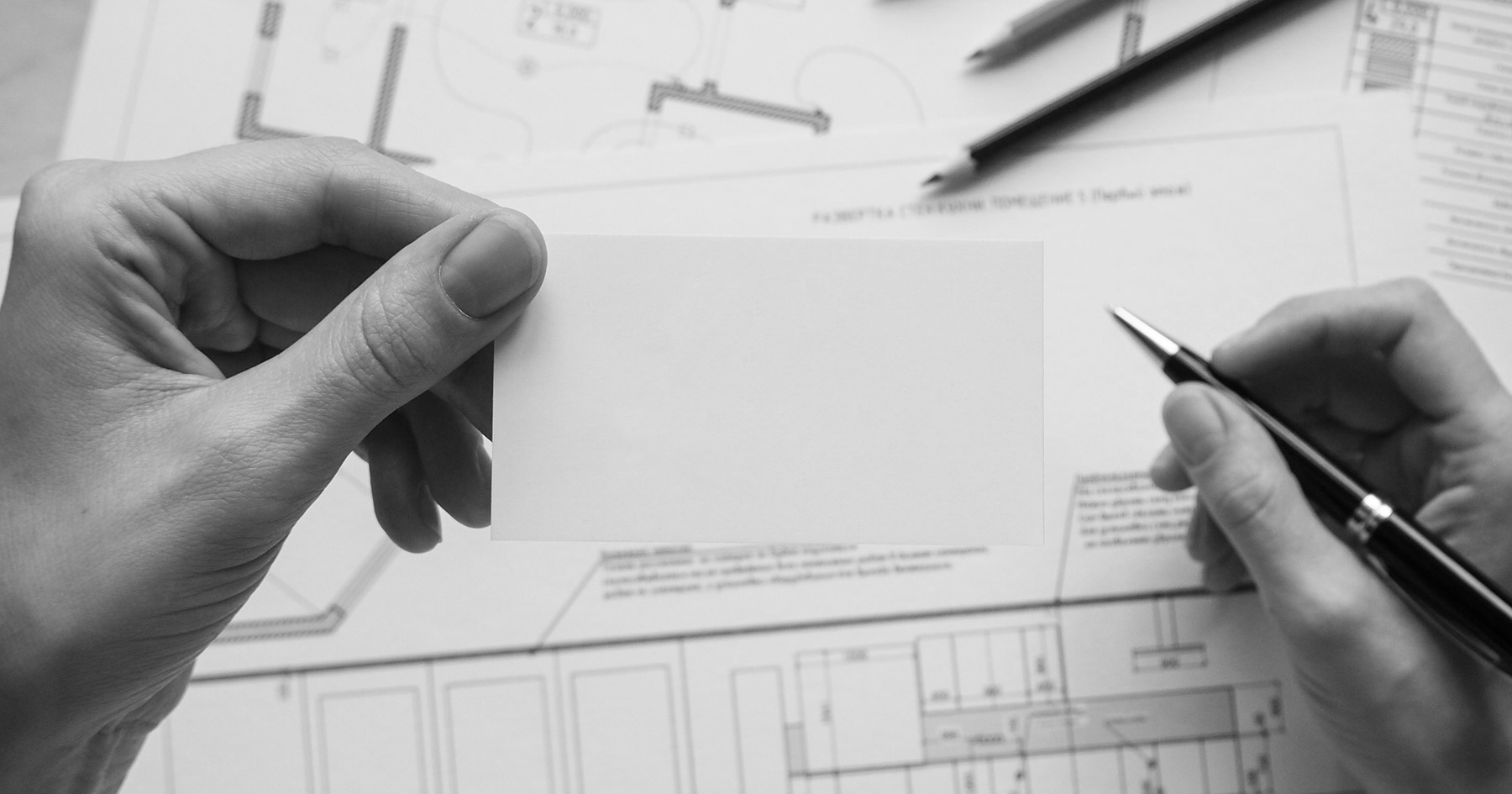

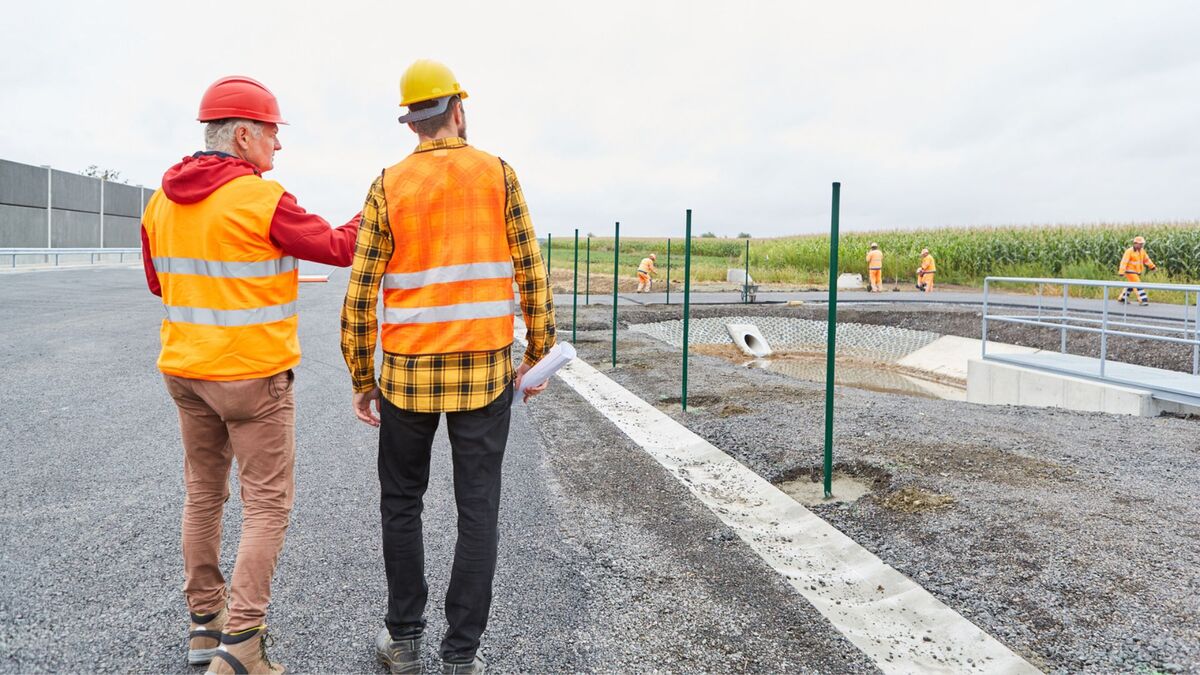

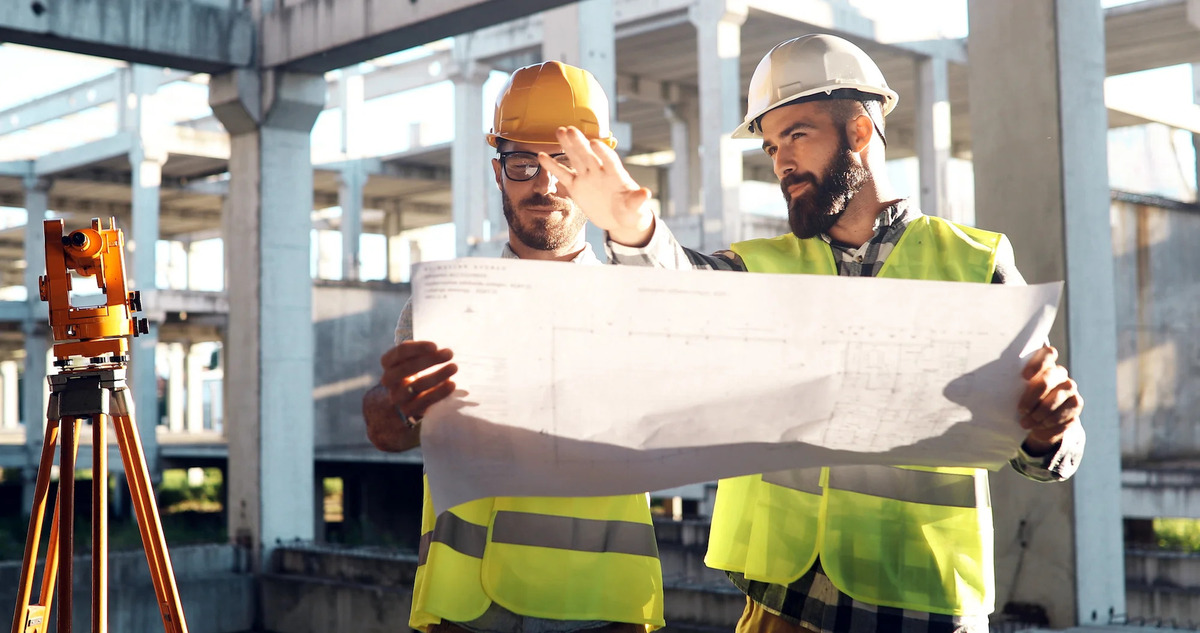
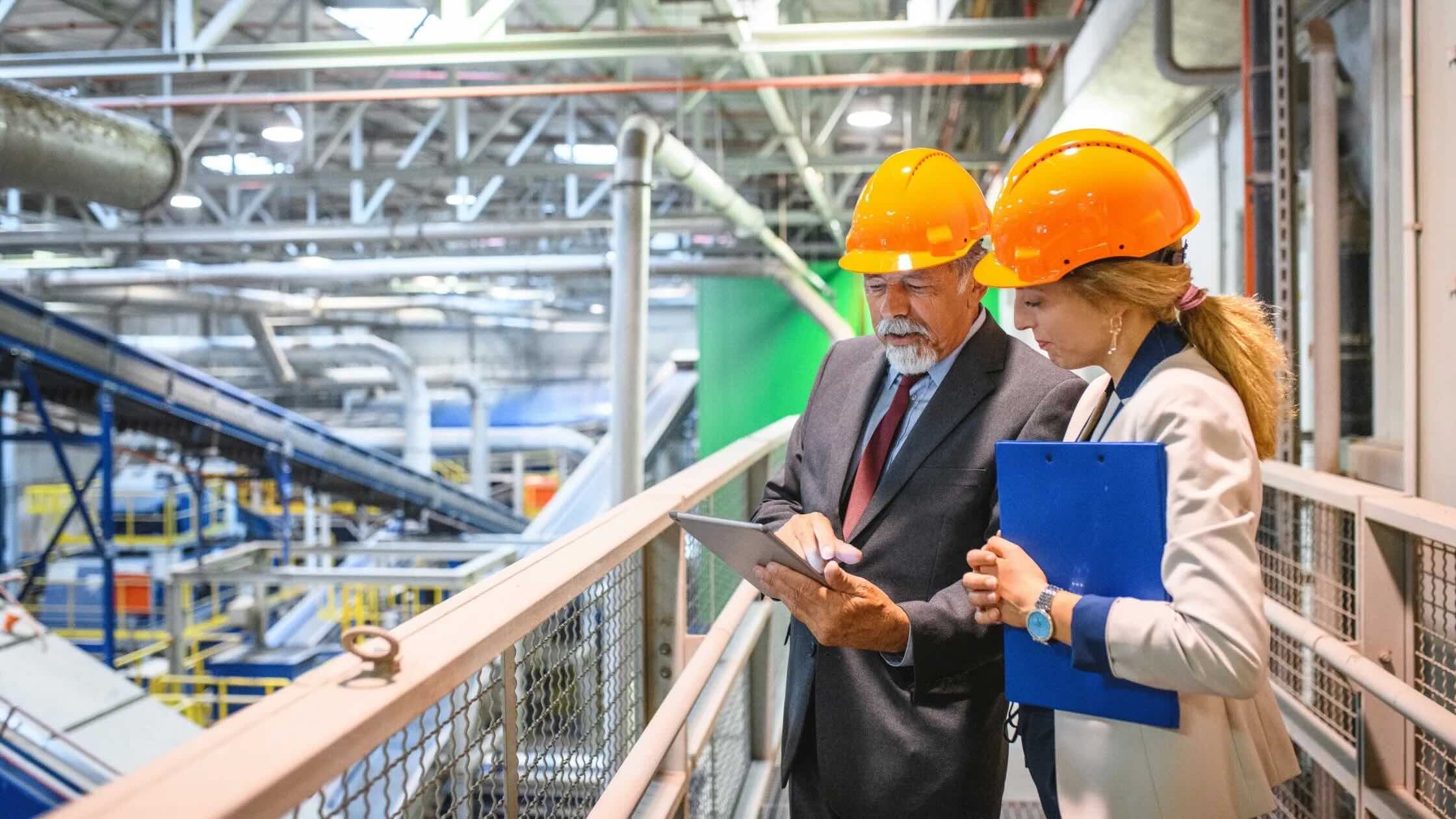

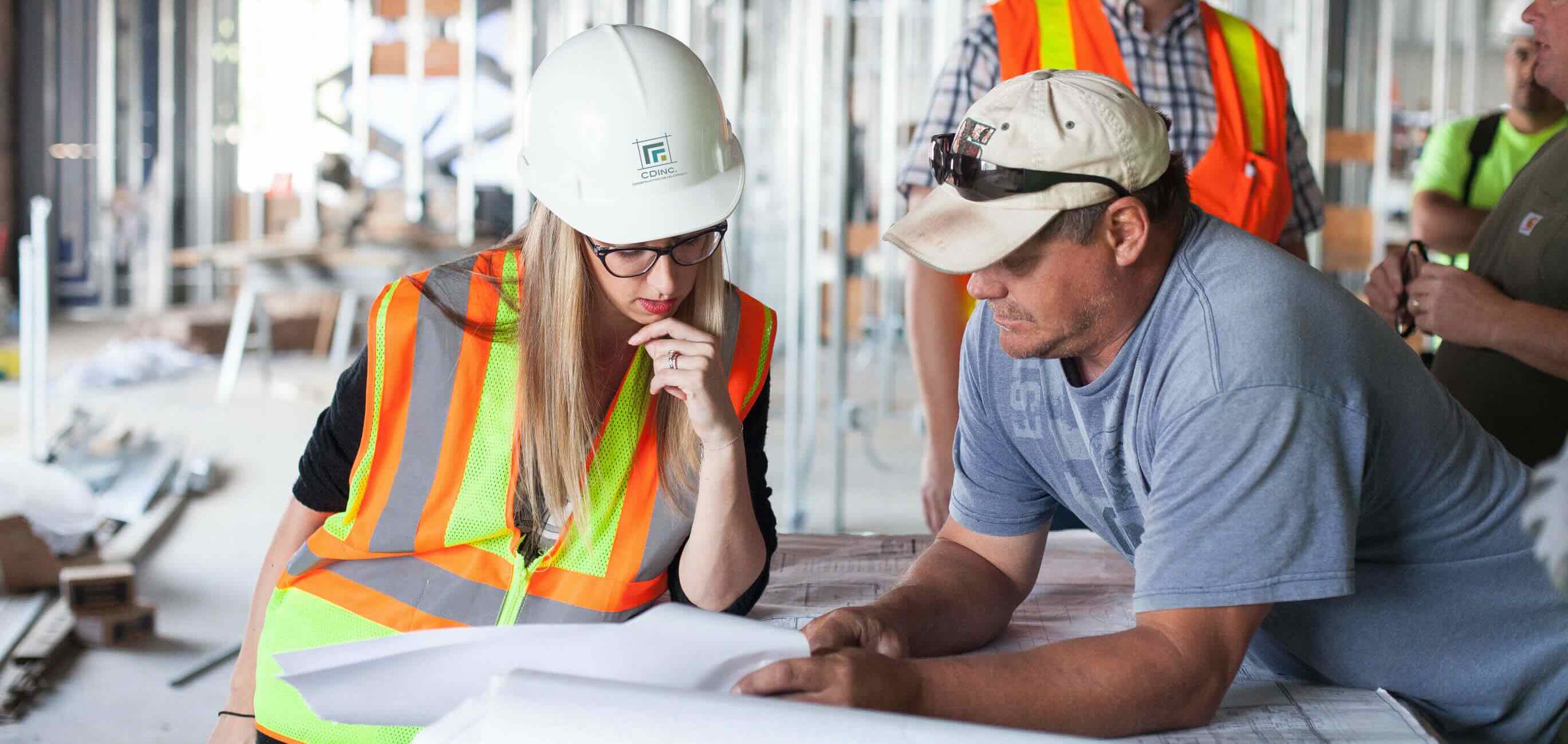



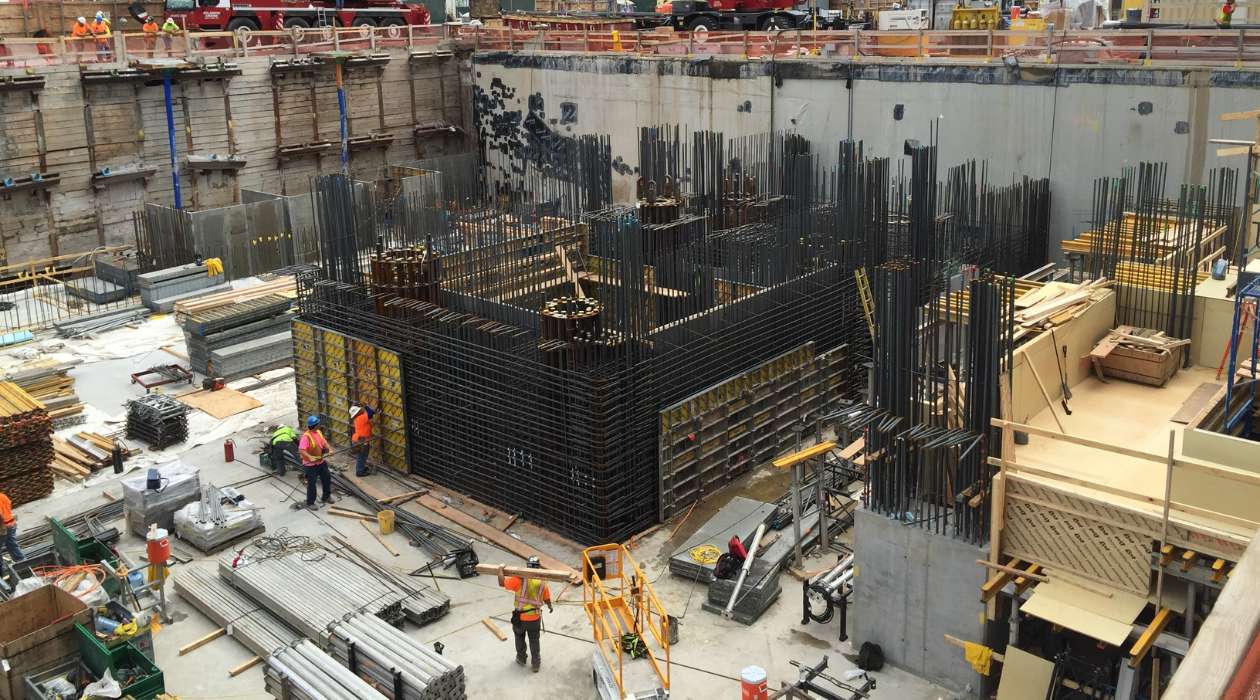


0 thoughts on “How To Manage A Construction Company”